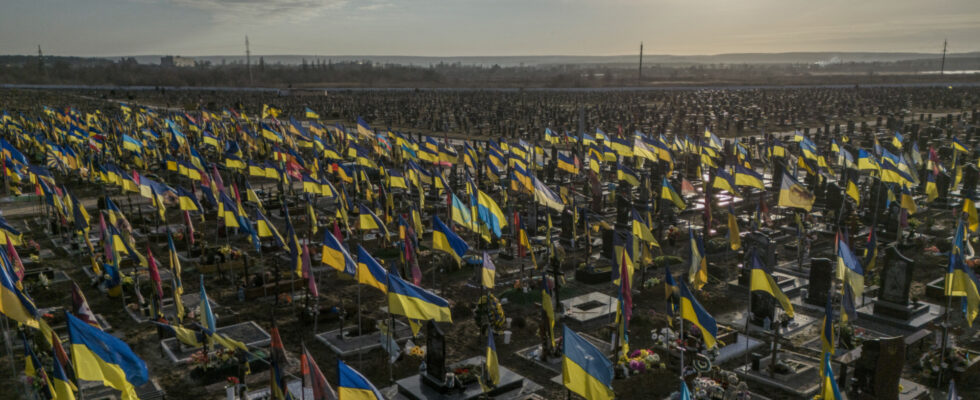Baptiste Morin / Photo credit: NARCISO CONTRERAS / ANADOLU / ANADOLU VIA AFP
modified to
9:20 a.m., February 24, 2024
Two years later, the war in Ukraine launched by Vladimir Putin had economic consequences. And, according to a study signed by the Astérès firm, the Russian economy has been more affected than the economies of European countries, particularly with Europe’s sanctions on Russia and a surge in gas prices.
This Saturday is the second anniversary of the Russian invasion of Ukraine. The war launched by Vladimir Putin has had economic consequences, notably with European sanctions on Russia and a surge in gas prices. Ultimately, a study signed by the Astérès firm concluded that the Russian economy was more affected than the economy of European countries.
Between the end of 2021, before the start of the war, and the start of 2024, the Russian economy did not collapse, but it grew less than that of the euro zone. “European growth in 2022 and 2023 slowed down but remained positive. So there is a shock for the European economy and the Russian economy, but the shock was significantly less violent in Europe,” notes Sylvain Bersinger, head economist at Asterès.
Russia, ace of circumvention
If the Russian economy has withstood the shock better than expected, it is notably thanks to military spending. And then, Russia has also organized itself to circumvent the sanctions. “Russia continues to import Western products. They pass through countries like Kazakhstan, Armenia and Turkey. Trade flows are extended but they continue to exist,” says Sylvain Bersinger.
Russia also relies heavily on its trade relations with China now. And it is this link that Brussels targeted this week with a new round of sanctions.
